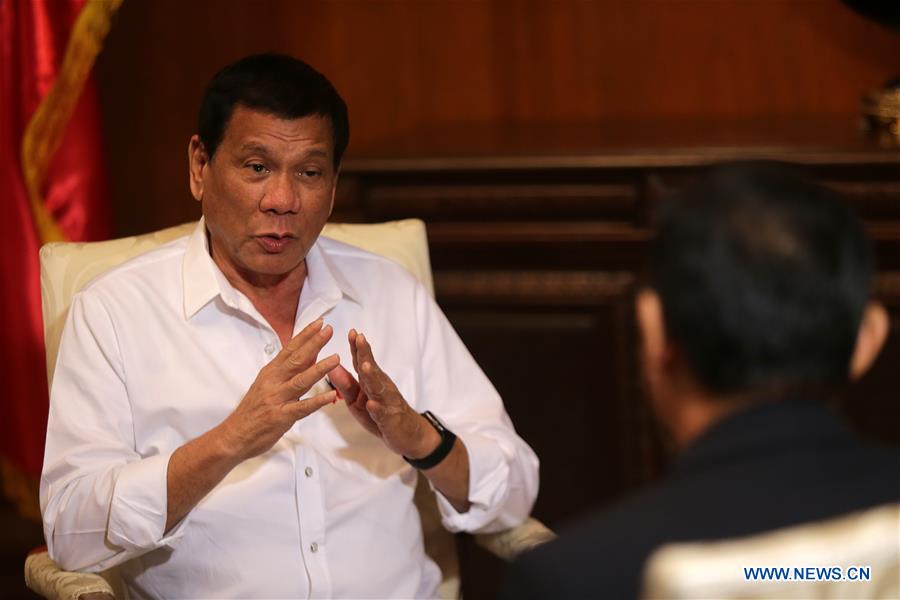BEIJING, Oct. 18 (Xinhua) — After years of estrangement, the bad blood between Beijing and Manila has finally begun to give place to good faith, as Philippine President Rodrigo Duterte embarks on an ice-breaking trip to China on Tuesday.
The visit surprises many around the world. It comes at a time when China-Philippines ties have nosedived to a historical low because of the farcical South China Sea arbitration case brought by Duterte's predecessor Benigno Aquino III against China.
In a reflection of his keenness to repair the seriously damaged relations, the new Philippine president chose China to be the first country he visits outside the Association of Southeast Asian Nations since taking office in June.
Meanwhile, the trip also serves as an encouraging sign of the president's pluck and pragmatism on foreign relations and international disputes. On the South China Sea issue, he has avoided his predecessor's idiosyncrasies of colluding with outside meddlers and making unnecessary provocations, and instead reiterated the need of dialogue and negotiation, an approach that is largely in line with Beijing's stance.
Given the positive signs, Duterte's widely-watched visit to China functions as a litmus test of his sincerity and political wisdom. Among others, he needs to resist the temptation to thrust the so-called final award in the arbitration case to bilateral talks on the South China Sea issue. The verdict issued by a law-abusing tribunal has no place in the negotiations at all.
Should he demonstrate his good faith, the trip will present a long overdue opportunity for the two nations, which enjoy longstanding friendship, to heal the wounds of the past few years and steer their relationship back to the right course.
A Beijing-Manila detente will be richly rewarding not only on the political and diplomatic fronts. With mutual trust restoring gradually, bilateral exchanges and cooperation in business and other areas will heat up in tandem.
That accords with Duterte's aspirations at home. Having waged a war on drugs and vowed to make peace with the rebels, he pledges to spur economic development for the benefit of all the Philippine people.
For Duterte's domestic visions to materialize, Manila needs international supporters, not least those who sympathize with his fierce campaign against drugs and stand ready to increase investment in his country.
Beijing will be a ready partner should bilateral ties thaw. China has expressed understanding of Duterte's priority on the antinarcotics battle, and the world's second-largest economy is also interested in tapping into the two countries' respective strengths and cranking up win-win cooperation.
The benefits of the anticipated rapprochement go beyond the two countries. It is a win for all peace-loving and development-pursuing nations in the region, as it will spare the region of contagious tensions and help foster a conducive neighborhood environment.
Without doubt, it is pure fantasy to expect the visit to solve all problems between China and the Philippines. Yet the very fact that the trip happens is indicative of the spunk and statecraft of both sides, and suffices to bring forth optimism and hope.
